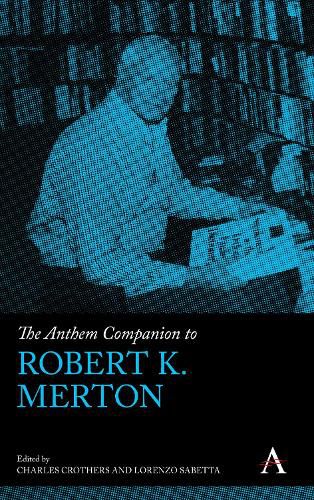Readings Newsletter
Become a Readings Member to make your shopping experience even easier.
Sign in or sign up for free!
You’re not far away from qualifying for FREE standard shipping within Australia
You’ve qualified for FREE standard shipping within Australia
The cart is loading…






Robert K. Merton’s sociological work spans several decades: 1920s (childhood), 1930s (anomie, science, unanticipated), 1940s (housing studies, mass communications, structural-functional analysis, professions, focus groups), 1950s (reference groups), 1960s (ambivalence) and later decades (structural analysis, sociological semantics, cultural sociology). He particularly contributed to sociology during a period when several specialties were being set up and yet his work spans both general and specialist sociologies. He is recognized as the father of anomie/strain theory, focus groups, sociology of science, role set theory, analytical sociology, structural-functional analysis, ambivalence studies and sociological semantics, but always endeavoured to keep the multifarious threads of sociology together. Merton stood at the junction of many other crossroads: classical and modern sociology; American and European sociology; theory and research; philosophy of social science and applied sociology; pure academic sociology and applied sociology; cognitive and social; social sciences and humanities; social sciences and science. Yet the different components of RKM’s work relate to each other. RKM had a major effect on the baby boomer generation of sociology who joined the ranks of sociology at a time of great expansion of university positions across many developed countries. Other generations of sociologists so far less exposed to his work should gain much from consideration of the essays in this volume.
$9.00 standard shipping within Australia
FREE standard shipping within Australia for orders over $100.00
Express & International shipping calculated at checkout
Robert K. Merton’s sociological work spans several decades: 1920s (childhood), 1930s (anomie, science, unanticipated), 1940s (housing studies, mass communications, structural-functional analysis, professions, focus groups), 1950s (reference groups), 1960s (ambivalence) and later decades (structural analysis, sociological semantics, cultural sociology). He particularly contributed to sociology during a period when several specialties were being set up and yet his work spans both general and specialist sociologies. He is recognized as the father of anomie/strain theory, focus groups, sociology of science, role set theory, analytical sociology, structural-functional analysis, ambivalence studies and sociological semantics, but always endeavoured to keep the multifarious threads of sociology together. Merton stood at the junction of many other crossroads: classical and modern sociology; American and European sociology; theory and research; philosophy of social science and applied sociology; pure academic sociology and applied sociology; cognitive and social; social sciences and humanities; social sciences and science. Yet the different components of RKM’s work relate to each other. RKM had a major effect on the baby boomer generation of sociology who joined the ranks of sociology at a time of great expansion of university positions across many developed countries. Other generations of sociologists so far less exposed to his work should gain much from consideration of the essays in this volume.